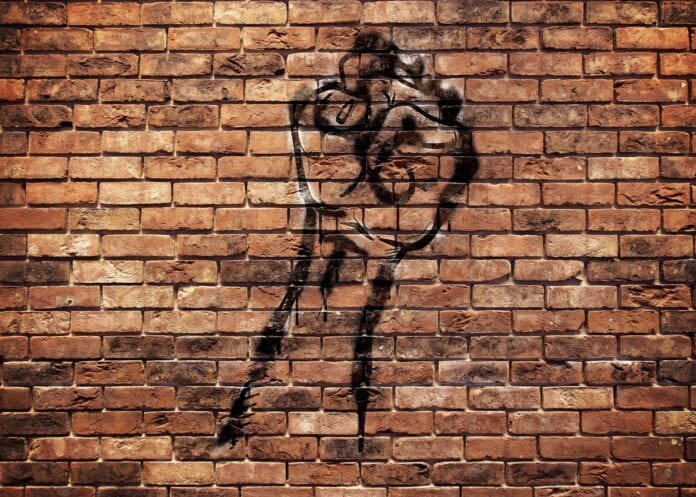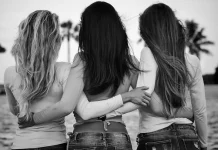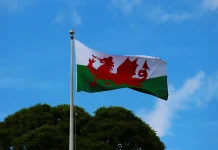I will admit first of all that I have had a personal experience like that of the Floyd family. I lived in the East End of London in the late 70s and early 80s. Winston was black and a close friend of mine. He and his wife lived 2 doors down. One day he was mistakenly arrested by the police and died in custody, because he too could not breathe. The family was distraught and nothing ever happened to the police concerned.
Another time my mother and I were on a demonstration against the National Front and the police arrested a young Asian man who had done nothing. My mother was so angry that she searched for him in every police station in the area with just knowing the colour of his anorak. She found him and offered us as his witnesses. We watched as the police fabricated a whole story around the arrest. When the police solicitor said,” I put it to you, Ms Fisher, that you have just told me a complete pack of lies”. I replied with,” you can put it whatever way you like, my dear, but I know what I saw”. She turned to the police witnesses and shrugged. We got him off. Then the magistrate said that this case was properly brought. I asked the defence solicitor why he said that and she told me that they could not now get the police for perjury. The Magistrate Court used to be called the police court in the old days.
I myself was thrown into jail for no reason. The police thought it was hilarious.
I have been beaten up by the police at demonstrations and if it had been filmed I would have looked like a troublemaker, which I was not. That happened when I was a student in the mid sixties.
Of course things have changed enormously in the police force now, but the use of horses is still used and I believe that should not happen. I remember during the miners’ strike of 1984-1985, the miners wives told me several horror stories about the police and they behaved despicably at Orgreave. The police would taunt the miners. An example was a police officer saying that because of all his overtime beating up the miners he had just come back from a holiday in Bermuda. The miners were a very law abiding community and during the strike they were on the bread line.
So with my cards on the table, you are aware of where I stand. Black people in Britain are still dehumanised by the media, disproportionately imprisoned and dying in police custody and now dying disproportionately of Covid-19.
Now let us look at Bristol which was built on the slave trade. Only recently a friend of mine went to visit Bristol and while there never saw a single black face. She was sure that there were many black people living in Bristol.
Colston was the main slave trader for Bristol and made a fortune on the lives of black people. Because he donated a great deal of money to Bristol, people closed their eyes historically to what he had done. Bristol City Council discussed removing this statue for years. It is a pity that they never made the right decision.
David Olusoga, the historian and broadcaster said that it was fitting that “the fall of Colston is history itself and that the Colston statue sleeps with the fishes.” Now that the statue has been retrieved it will hopefully go into a museum where the true story will be told without the awful veneration.
Sometimes, we British seem to be proud of being ignorant and we need to stop this. You can see the rants on Facebook and a statue of a peaceful and talented black poet in Bristol had bleach thrown over it in revenge for the treatment of Colston’s statue. It’s senseless and the madness of ignorance is alive and well and living in Britain.
To continue with a little history, Colston’s ships were moored in Bristol harbour. Due to him, 85,000 African captives were delivered to the Americas and the Caribbean. Sharks got used to following these ships because in the inhuman conditions below many died en route and their bodies were unceremoniously thrown into the sea like garbage. Colston’s captains of his slave ships were given bonuses for their work. They were allowed to keep some slaves who they could then sell to the elite of Bristol as exotic fashion accessories, like little page boys. They were called “privilege negroes”. Eighteenth century Bristol newspapers printed adverts offering rewards for the recapture of slaves who had run away.
Many pressing issues are proof that the UK is not committed to Racial Equality.
- The unwillingness of the government to release the Public Health England’s report of the number of deaths of the Coronavirus amongst the Black and Asian communities.
- The Windrush scandal.
- The hostile environment in which they live.
- The lack of support for the victims of the Grenfell fire.
- The resistance to the teaching of Black history.
- The continuing glorification of the British Empire’s legacies.
- The police brutality towards black people.
- The murder of Stephen Lawrence showed up the institutional racism of the police force. Dr. Lawrence, Stephen’s father points out that this continues to this day.
- The excessive fines against Black and Asian people for breaking Lockdown rules and yet Dominic Cummings walks free.
When the twin towers in New York were brought down by a massive terror attack, people were shocked and terrified. It was called 9/11 because it happened on the 11th September 2001.
The late great black writer Maya Angelou wrote, “Living in a state of terror was new to many white people in America, but black people have been living in a state of terror for 400 years. “ THIS GOES BACK TO THE LEGACY OF THE BRITISH EMPIRE.
America had been a colony and Britain had serviced the Southern states with slaves on a regular basis.
The British Empire industrialised black enslavement in the Caribbean.
It set up systems of apartheid all over Africa and during the Boer War, it was the British who invented concentration camps, long before Hitler.
It took black land, resources and labour to fight both world wars and used all that again to reconstruct peace.
The subjugation of India started with Elizabeth the First allowing the East India Company to develop their power in India. Wealth was measured by the amount of spices you had and India was the source of these spices. The company then set up its own private army and eventually it became a power base for the British Crown. India was exploited for the Industrial Revolution and Britain expanded through India beating the French who had their own Empire. The Indians were treated as racially and culturally inferior. Churchill was responsible for the famine in India and Dyer was responsible for the Amritsar massacre against non-violent protesters. The Indians were treated with casual brutality by the British and India’s wealth was drained.
Let us move back to the present time. General Powell, a black American General, once said that he could not have become a general in the British army. It was too entrenched in racism. Prince Charles was once inspecting the Grenadier Guards and asked why there were no black faces there. He insisted that something be done about it by his next inspection. Fighting for Civil rights is never civil. The suffragettes took to violence to get the vote and we look back at them as heroines. So if there is violence today, we need to look soberly at the reasons and understand why.
If you want to make a difference to fight for a better world, there are so many things you can do.
- Join groups that fight for rights.
- Create a reading group to look at Black history and the amazing assortment of brilliant black and Asian writers.
- Support a group financially.
- Make your vote count- really research who you should vote for. Don’t just follow the crowd.
- Write to your MS.
- Make work fairer.
- Employers, look at your workforce. If they are all white, question yourself.
- Set up racial harassment policies to protect your black workers.
- Improve education.
- Take responsibility for tackling racism.
STAND UP AND BE COUNTED.
Help keep news FREE for our readers
Supporting your local community newspaper/online news outlet is crucial now more than ever. If you believe in independent journalism, then consider making a valuable contribution by making a one-time or monthly donation. We operate in rural areas where providing unbiased news can be challenging. Read More About Supporting The West Wales Chronicle

























